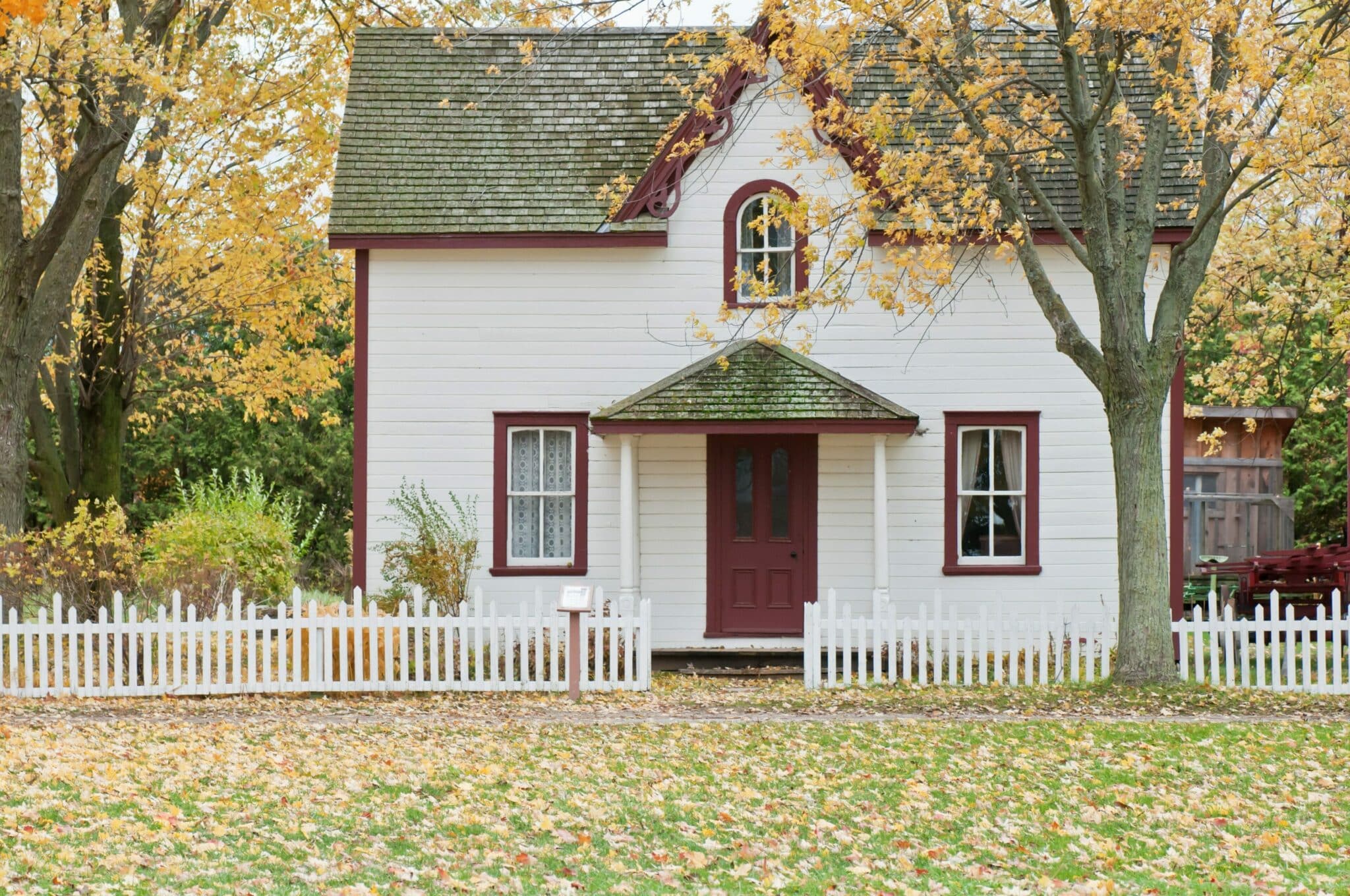Everything You Need to Know About the Land Transfer Tax

Table of contents
If you’re in the process of buying a property, you’re likely aware of the various fees and expenses involved, such as closing costs, appraisals, legal fees, movers, and new furniture. If you’re buying and selling as a part of your move, you could be looking at setting aside more money for realtor fees and bridge loan financing. However, one fee that often flies under the radar is the land transfer tax. This tax, also known as the Property Transfer Duties or Welcome Tax in Quebec, is an additional cost that homebuyers must consider.
In this guide, we’ll walk you through everything you need to know about the land transfer tax, including who pays it, the different rates in various regions, exemptions for first-time homebuyers, and more.
Key Takeaways
- Land transfer taxes are fees buyers pay to have the title transferred in their name.
- A few jurisdictions offer rebates and exemptions if you meet eligibility as a first-time homebuyer (FTHB).
- Understanding land transfer tax rates where your prospective property is located will help you budget effectively for your closing costs.
What are Land Transfer Taxes?
Land transfer taxes, also known as property transfer taxes/duties or welcome taxes, are fees homebuyers pay to the province or municipality, or in some cases, both when purchasing a property. These taxes are separate from other fees and expenses associated with closing a property, such as legal, home inspection or appraisal fees.
In some provinces and municipalities, first-time homebuyers are eligible for a refund of all or part of the land transfer tax. The land transfer tax is a one-time payment due on the closing day of your purchase when the property’s title is transferred into your name.
Who Pays the Land Transfer Tax?
The land transfer tax is a fee introduced in most Canadian provinces during the 1970s and 1980s. The buyer pays the province or municipality, and sellers are not responsible for paying this tax. The land transfer tax aims to generate revenue for municipalities, which are prohibited from taxing income and sales.
How Much Will Land Transfer Taxes Cost Me?
Land transfer tax rates vary from province to province. They are usually calculated based on the property sale price, but they can also be based on the assessed property value.
As a rule of thumb, you should budget 1-1.5% of your property value for land transfer tax. Remember that this amount cannot be added to your mortgage balance or mortgage payment. It needs to be paid in full when you close on the property.
For example, if you purchase a property valued at $300,000 in Ottawa, Ontario, you will pay a land transfer tax of approximately $2,975. However, a first-time home buyer in Ontario is exempt from up to $4,000 on their land transfer tax and would be charged $0.00 upon possession.
The same property will have a land transfer tax of $3,000 in Montreal. You’re looking at $4,000 for the same property in Vancouver, BC.
Most provinces and municipalities have a land transfer tax calculator widget on their website. Log onto the appropriate website and type in the purchase price of your property to find out the exact amount you will have to pay. (See: Canada Land Transfer Tax Calculator)
When Do I Have to Pay the Land Transfer Tax?
In most cases, the land transfer tax will be paid as soon as you take possession of the property. Your lawyer will arrange the payment when the deed is transferred to your name on closing day.
Land transfer tax is a one-time payment, unlike property taxes, which are paid annually. Therefore, you will only need to pay the tax once as a lump sum. It cannot be paid in installments.
Land Transfer Tax Rates
Land transfer tax rates can vary by region, and different provinces and municipalities have different tax rates and structures. The tax is usually calculated based on the property’s value, although in some cases, it may be based on a combination of the property value and mortgage principal.
It’s best to check with the province or municipality where the property is located or use a land transfer tax calculator to determine the exact amount you will need to pay. However, your solicitor or notary will be able to confirm your total closing costs, including land transfer taxes and all fees for you on your Statement of Adjustments, before your appointment for your closing.
Do I Pay Land Transfer Tax as a First-Time Homebuyer?
One common question is whether first-time homebuyers are exempt from paying the land transfer tax. The answer depends on the province and sometimes the municipality where the property is located.
In some provinces, first-time homebuyers (FTHB) may be eligible for a refund of all or part of the land transfer tax. This refund is intended to help ease the financial burden for first-time buyers. Researching and understanding the specific rules and regulations of your prospective purchase’s location is valuable to determine if you qualify for any exemptions or refunds.
Can I Avoid Land Transfer Taxes?
While certain exemptions and refunds may be available for specific situations, it is generally not possible to avoid paying the tax. Land transfer taxes are an established part of the property purchasing process and are required by law.
It is essential to consult with your solicitor or notary to understand your prospective property’s location’s specific rules and regulations and to ensure you comply with all tax obligations.
How to Calculate Land Transfer Tax
Calculating land transfer tax can be complex, as it involves various factors, such as the value of the property and the applicable tax rates. In some cases, your mortgage principal amount will also determine how much land transfer taxes you pay.
You can use online calculators like the one from nesto or ones provided from the respective provinces or municipalities. Land transfer tax calculators will require you to input the necessary information, such as the purchase price, to determine the exact amount you must pay.
The Land Transfer Tax is NOT a Sales Tax
It is important to note that land transfer tax differs from sales tax on a new build. If you purchase a brand new property, there may be GST/QST/HST in addition to your land transfer tax, though there may be rebates or exemptions for both. The land transfer tax is a fee associated with the transfer of property ownership, while the sales tax is a tax on purchasing goods and services. It is important to account for both taxes when budgeting for your newly built property purchase.
Can I Be Exempted From Paying the Land Transfer Tax?
A homebuyer can be exempted from paying land transfer tax in some cases.
In Ontario, you don’t have to pay the tax provided the transfer meets one of the three following conditions:
- certain transfers between spouses,
- certain transfers from individuals to family business corporations,
- certain transfers of farmed land between family members,
- and certain transfers of a life lease from non-profit organizations or charities.
Certain cities will exempt the buyer if the land is transferred to a descendant, such as a father, mother, brother, sister, or grandparent. This is also the case throughout the province of Quebec.
The City of Montreal, in an effort to keep families from leaving for the suburbs, has set up a program through which buyers of a residential property who have at least one child under 18 or a child who will be born or adopted no later than 9 months after the property is purchased are eligible for a full refund of the land transfer tax.
Land Transfer Taxes by Province or Municipality
The collection of land transfer tax can vary depending on the property’s location. In some cases, the tax is collected by the province, while in other instances, it is collected by the municipality. In other cases, like Toronto, provincial and municipal taxes are collected. This information can be obtained from the appropriate provincial government or municipal websites.
Regional Variation in Land Transfer Taxes
It is important to note that land transfer taxes can significantly differ between provinces and municipalities, with some areas charging higher transfer fees than others.
- For example, homebuyers in Toronto face higher land transfer taxes than those in other parts of Ontario.
- In Alberta, land transfer taxes are calculated based on the property value and the mortgage amount.
- In New Brunswick land transfer tax is a flat tax of 1% of the purchase price or the property assessment value.
Land Transfer Tax Examples Throughout Core Canadian Cities
Land transfer tax rates and calculations can vary between different cities in Canada. Let’s take a look at some examples of this tax in core Canadian cities:
Ottawa
In Ottawa, Ontario, land transfer tax is calculated based on the property’s purchase price. For example, if you were to purchase a property valued at $300,000, you would pay $2,975. It is important to note that first-time homebuyers in Ontario may be exempt from up to $4,000. In this example, you would not owe any land transfer tax if you qualify as a first-time buyer.
Toronto
In Toronto, there is an additional municipal land transfer tax in addition to the provincial tax. The municipal tax is calculated based on the same property value structure as the provincial tax. For example, if you purchase a property valued at $500,000 in Toronto, you would pay $12,900 in land transfer tax.
A qualifying first-time homebuyer (FTHB) would get a total rebate of $8,475, leaving a payable land transfer tax of $4,475. It is important to consider both the provincial and municipal taxes when purchasing property in Toronto.
Vancouver
In Vancouver, land transfer tax is based on property value. For example, if you purchase a property valued at $700,000, you would pay $12,000 in land transfer tax. As the property’s purchase price is over $525,000, first-time homebuyers (FHTB) cannot claim any rebates or exemptions and must pay the full land transfer taxes.
Calgary
In Calgary, land transfer tax is based on the property value and the mortgage principal. For example, if you were to purchase a $300,000 property in Calgary, you would pay $305.50, assuming you made a 5% down payment and have a mortgage principal of $285,000.
Frequently Asked Questions
Is every buyer required to pay land transfer tax?
Land transfer taxes are a requirement in most of Canada when the buyer has the property transferred into their name. Depending on the province or municipality where the property is located, some exemptions or rebates could waive or reduce the amount owed if you meet the eligibility criteria.
If I qualify for a rebate or refund, how do I claim it?
If you meet the eligibility criteria for a refund or rebate, your real estate lawyer or notary will complete the appropriate tax forms for the claim in the province or municipality where the property is located.
Can I write off land transfer taxes at tax time?
Land transfer taxes paid when you purchase a property are not tax deductible, meaning you cannot claim or write off this expense at tax time. This is mainly because they are not considered income taxes and cannot be used to reduce any income taxes paid.
Final Thoughts
The land transfer tax is an important consideration when purchasing a property in Canada. It is a fee paid by the buyer to the province or municipality and is separate from other fees and expenses associated with buying a property. The land transfer tax rates and calculations can vary between provinces and municipalities, so it is important to research and understand your prospective property’s location’s specific tax rates and fee structure.
It is advisable to consult with a legal professional or tax advisor to ensure that you comply with all tax obligations and to properly budget for this additional cost when purchasing a property.
If you’re ready to move forward on your new home, reach out to nesto’s professionally licensed mortgage experts to guide you with your purchase.
Ready to get started?
In just a few clicks, you can see our current rates. Then apply for your mortgage online in minutes!















